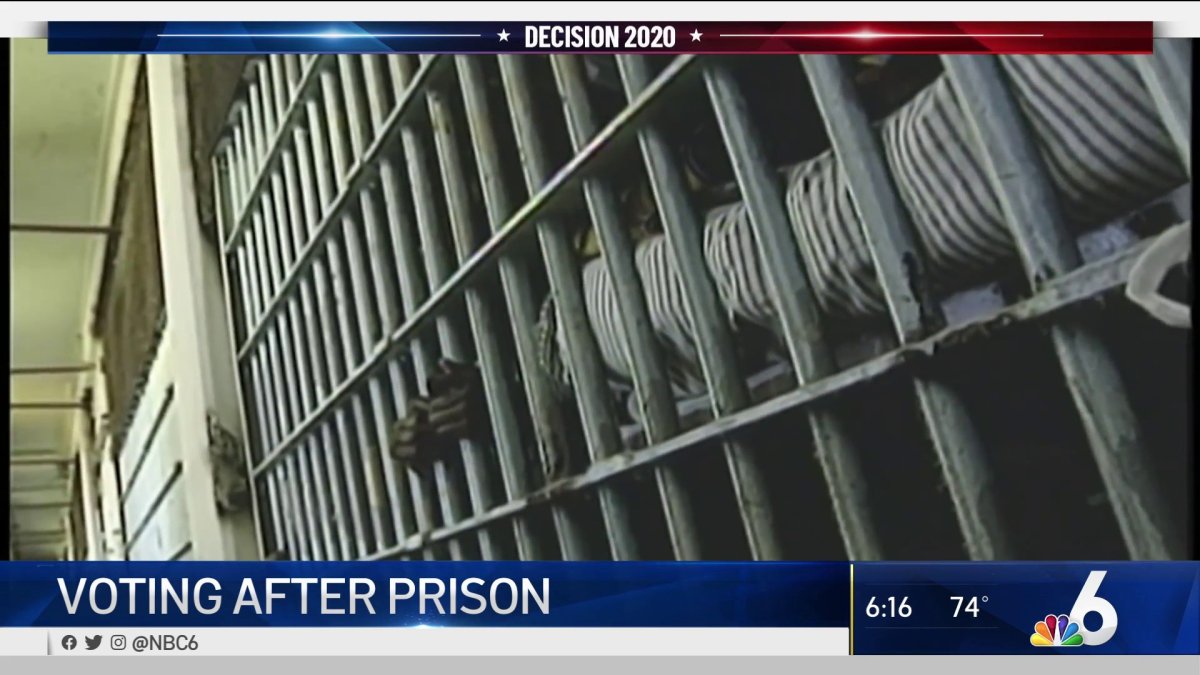
This has already been a historic election year. But this is also the first presidential election where former felons were allowed to vote if they paid all their fines and fees. NBC 6 Investigators have been following one man’s journey for over a year — from prison, and now to voting.
This has already been a historic election year, but it’s also the first presidential election where former felons were allowed to vote if they paid all their fines and fees - a steep climb for many.
NBC 6 has followed one man through his journey from serving time behind bars to being released, and now voting for president of the United States.
James Caruso stood in line during early voting in Sunrise a few months after he was released from prison. He served 18 years for having 48 pills of the prescription opioid hydrocodone back in 2002.
“It’s awesome. You don’t realize how important it is until you lose it,” Caruso told NBC 6 while walking out of the voting location. “I have a say, my voice matters. It may not matter to everyone but it mattered just now.”
Caruso would probably not have been able to vote without a review of his case from the Broward County State Attorney.
He was convicted in 2002 and sentenced to 25 years in prison with a half a million dollar fine. Since then, state lawmakers reduced the time for the crime down to three years but they did not make it retroactive to those already in prison.
Investigations
The NBC 6 Investigators get results
In Caruso’s case, the Broward State Attorney changed his original charge, which allowed him to get out early. In addition, they wiped clean that half a million dollar fine. Earlier this year, leaders in the office told NBC 6 it was in the name of “fundamental fairness.”
“Obviously, it helped immediately with this because I wouldn’t be able to vote at this time if I still had the fine,” Caruso said.
Florida voters approved Amendment 4 in 2018, ending the lifetime voting ban for felons. Knowing exactly how many former felons are voting is difficult because the data is incomplete and there is no one set database of who owes fines and fees.
Caruso says he would not have voted if that original fine remained.
“That’s unfortunate. A lot of people won’t be able to because most guys have fines and some of them are draconian,” Caruso said.
Earlier this fall, the Tampa Bay Times, the Miami Herald and ProPublica analyzed state data and estimated more than 30,000 people with a felony on their record have registered to vote since Amendment 4 passed. However, advocates estimate more than a million Floridians could eventually have had their rights restored.